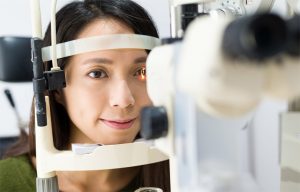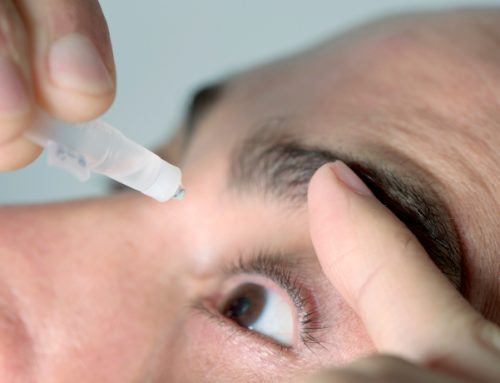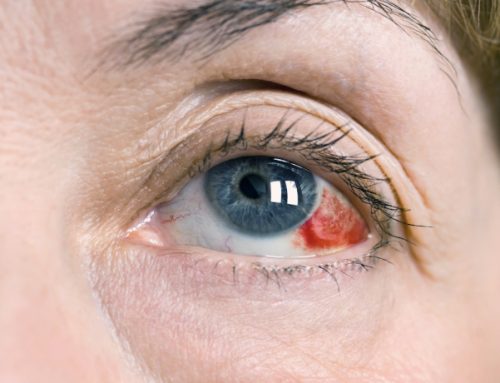I See Fine…Why Do I Need An Eye Exam?
 A comprehensive dilated eye exam is the only way to be certain your eyes are healthy. During your examination, each eye is closely inspected for vision problems and eye diseases. Since many eye diseases do not present early warning signs, the pupils are dilated to enable your eye care professional to see inside the eye. As the drops are placed in the eye, the pupils begin to widen allowing more light to enter the eyes. A special magnifying device is then used to look clearly at the tissues at the back of the eye, namely the macular, retina, and optic nerve.
A comprehensive dilated eye exam is the only way to be certain your eyes are healthy. During your examination, each eye is closely inspected for vision problems and eye diseases. Since many eye diseases do not present early warning signs, the pupils are dilated to enable your eye care professional to see inside the eye. As the drops are placed in the eye, the pupils begin to widen allowing more light to enter the eyes. A special magnifying device is then used to look clearly at the tissues at the back of the eye, namely the macular, retina, and optic nerve.
How Often Should I Get An Eye Exam?
African-Americans are encouraged to begin having eye exams at age 40 because they have a greater risk for Glaucoma (see American Academy of Opthalmology Article). Otherwise, annual comprehensive dilated eye exams are recommended at age 60. Those with Diabetes should have an exam at least once a year, because they’re at risk for Diabetic Retinopathy, a disease that is the leading cause of blindness. Retinopathy causes swelling or micro tears in blood vessels of the retina. It can also cause abnormal growth of blood vessels in the retina.
Early Detection Of Eye Diseases Is Important.
Glaucoma is an eye disease that damages the optic nerve, which delivers information from the eyes to the brain. A patient’s eyes with Glaucoma will present changes in the shape and color of the optic nerve, or an excessive cupping of the optic disk where the nerve exits the eyes to meet the brain. Age-related Macular Degeneration (also known as AMD) is the leading cause of vision loss or blindness in patients over the age of 50. It is a disease of the macular at the back of the retina. These diseases and others can be controlled with early detection.
To make an appointment for your comprehensive dilated eye examination, contact Westside Eye Clinic at (504) 347-8434.
The content on this blog is not intended to be a substitute for professional medical advice, diagnosis, or treatment. Always seek the advice of qualified health providers with questions you may have regarding medical conditions.





